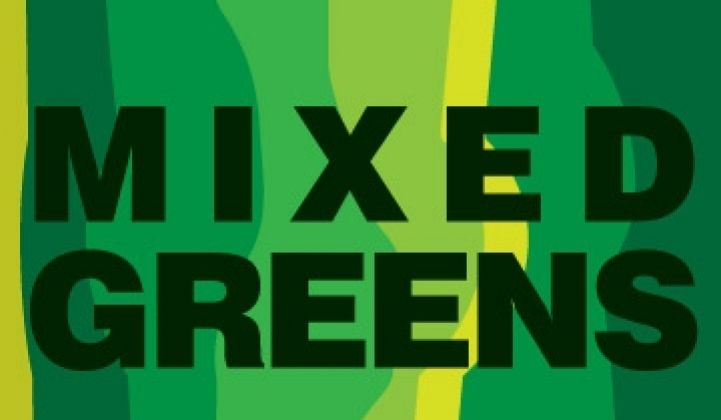Recycling. We've been claiming for a while that it would be a big market and here's some actual evidence.
A startup called ecoATM that gives consumers cash for their old electronics today said it raised $14.4 million in a first round from Claremont Creek Ventures and Coinstar. LIke Coinstar, ecoATM sets up self-guided kiosks that lets people exchange old DVD players for store credit or gift cards. In some ways, it's a better idea than Coinstar, which charges a commission that is close to 10 percent. Change has value so some consumers are reluctant to use the machines. Old electronics have almost no easily obtainable residual value. Build forts at daycare centers with old CRT tubes? They don't allow that anymore.
Recycling is attractive for a couple of reasons. First, we're up to our ears in trash. Second, new regulations are encouraging consumers and businesses to recycle. California, the EU and other jurisdictions have had e-waste regs for a while. Beginning this year, California now collects a fee when you buy new carpet to defray the future costs of recycling it.
Third, some companies have devised ways to turn a profit on recycled goods. MCR produces nylon from old carpet that is cheaper than new nylon: the run from its prototype factory is sold out. Lehigh Technologies, which has refashioned drug disposal equipment to make recycled rubber, can sell refurbished rubber for less than new at $80 a barrel oil prices. Ostara produces fertilizer from human sewage.
China’s threat to curb rare earth minerals has underscored the need to recycle, too, so stay tuned to The Story of Garbage.
Elsewhere:
--Speaking of garbage, NREL has an easy path for anyone who wants to get into the ethanol market. Scientists there have added genes from E. coli to a bacteria called Zymomonas mobilis to come up with a microbe that can somewhat efficiently convert cellulosic material into ethanol. Zymomonas has been cultivated for centuries in Latin America the same way North Americans have cultivated sourdough yeast. You mix some human spit with Zymomonas into a gourd and the next thing you know you've got beer with 8 percent alcohol.
NREL is licensing it for a fairly low royalty rate, the agency says. Biotechnology is one of the more challenging aspects of ethanol, so this could help some companies cut costs. Similarly, NASA has licensed technology for converting sewage into fuel via algae.
--Bill Gallo is the new CEO of Areva Renewables. Areva is mostly known for nuclear work in France but last year they bought Ausra, a solar thermal specialist, and refurbished the technology. Gallo comes from another Areva group.
--Schneider Electric formally announced its home-charging station for EVs. They jumped into the market last year at Plug-in 2010. Schneider also recently unveiled a home networking kit.
--China's regional governments are drawing up plans for carbon trading. "China plans to cut carbon intensity -- the CO2 produced per unit of GDP growth -- by 40 to 45 percent from 2005 to 2020 -- and needs local ideas on how to meet the goal," writes Reuters. Earlier in the week, the Vice Premier called for carbon fees.
--Finally, BluHomes has come out with a new, improved version of the modular Breezehouse. Modular homes are more energy efficient (they offer better seals to keep out the environment) and often use recycled materials, which brings us back to Do, a deer...



